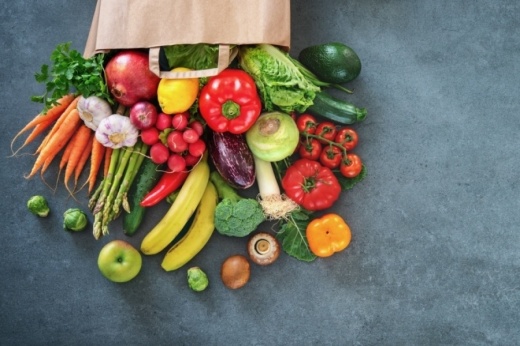Funds are being delivered to eight different organizations to help with food delivery services, create more food pantries, help low-income families enroll in public benefits and more.
The one-time contracts were funded through the American Rescue Plan Act—funds given to the county for COVID-19 relief.
“As more people are displaced to the edges of the county, this Court will do everything it can to fully support local organizations that work day in and day out to remove barriers to food access,” Travis County Commissioner Jeff Travillion said. "These contract awards will help ease financial burdens many Travis County residents face and help them live healthier lives.”
Understanding the contracts
The largest of the $3.1 million contract—$791,038—was awarded to Central Texas Food Bank. The CTFB will discreetly deliver 26- to 30-pound boxes of shelf-stable groceries to low-income residents who need food assistance and experience barriers getting food in-person.
The Sustainable Food Center received $291,527 for its Double Up Food Bucks program, which matches the benefits WIC participants receive while buying groceries at local farmers markets. The contract will increase the availability of the programs from one Saturday a month to every Saturday. It will also expand the program to 10 more markets and serve an additional 2,500 clients.
The Multicultural Refugee Coalition received a $316,202 contract for its Traditional Provisions program. Funds will be used to grow culturally relevant food—grown by refugee farmers—that is not always available at local grocery stores for low-income refugee families and immigrants.
“A lot of the time some of the things [refugees] use in their cuisine are only available in specialty markets and usually at a very high price—if they are available at all,” New Leaf Agriculture Director Matt Simon said. “Transportation concerns and socioeconomic factors can make it difficult to access those things.”
Farmshare Austin received a $416,816 contract for its Fresh for Less Food Access program, which offers reduced-price produce and healthy groceries at local markets. Funds will support five new mobile locations and double the amount of clients in the Veggie Rx pilot program, which provides fresh produce to diabetics and prediabetics.
El Buen Samaritano received $445,358 for its Food Access & Healthy Futures program, which provides food to low-income Travis County residents, particularly on the eastern crescent.
Urban Roots received $350,000 for its Removing Barriers to Fresh Food Project—where youth from low-income areas grow and farm produce to give to poor residents.
Foundation Communities received $508,342 for its Healthy Food Pantry Program—which operates 13 different food pantries and helps residents enroll in Supplemental Nutrition Assistance Program or other public benefits.
The Cook's Nook—which tackles food insecurity by providing chef-prepared meals to low-income individuals—received the $1.8 million contract for prepared foods.
Community needs
Representatives from these local programs spoke at a Nov. 15 Travis County Commissioners Court meeting to discuss the need for food access in the area.
About 15% of people in Travis County—or about 195,000 people—do not have access to affordable or nutritious food in the county, said Hannah Thornton, food access director for the Sustainable Food Center.
Cooks Nook CEO Amy Bell said food insecurity in the county is not just about hunger, but also about health, pointing to residents with diabetes or other chronic illnesses who do not have access to fresh food.
“We have demand beyond what we can provide,” Bell said. “There is a clear need for access to convenient, affordable and delicious meals.”





